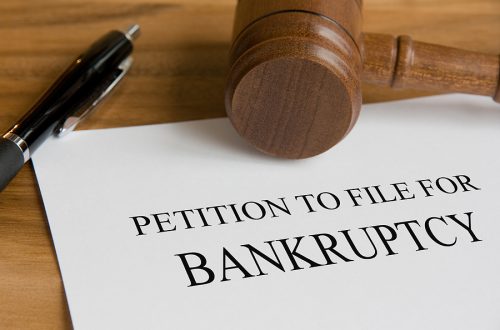Filing for bankruptcy is not an easy decision and many people fear a social stigma after they file. The truth is the stigma against debtors and those who file for bankruptcy has greatly decreased over the last 20 years, and there is no indication that debtors will be treated less favorably after filing for bankruptcy. In fact, it is oftentimes easier to reestablish your credit after filing for bankruptcy, because you are essentially given a “clean slate.”
To make the bankruptcy process a little easier to understand, we have dispelled the top five bankruptcy myths.
Myth 1: You will lose everything. You may think that filing for bankruptcy means you have to give up your home, your car, your flat screen TV, and all of your assets. This is simply not true. The vast majority of Chapter 7 cases are no-asset cases, meaning the debtor gives up no possessions. This happens for two reasons. First, you can allot for basic assets, called exemptions that are necessary for day-to-day living. What you can exempt varies from state to state, so be sure to discuss exemptions with an experienced bankruptcy attorney. For possessions that are not part of the exemption, creditors likely don’t want them. Under Chapter 13, you keep all of your assets, but the value of them figures into your repayment plan.
Myth 2: You will be relieved of all your debts. Both Chapter 7 and Chapter 13 bankruptcy will provide you relief from most of your debts. However, there are some exemptions. These include: recent taxes, child or spousal support, student loan debt, and debts that are the result of fraud you have committed.
Myth 3: Paying off your debt is a better option. Filing for bankruptcy is the biggest financial decision you will ever make, but it doesn’t mean it is a bad idea. If your debts are more than 50% of your annual income and you cannot pay them off in five years, bankruptcy is likely your best option.
Myth 4: Filing for bankruptcy means I have failed. Given that the number one reason for filing for bankruptcy is due to medical debt, this could not be less true. No surprise, the cost of medical deductibles has grown seven times faster than wages have risen. Many bankruptcies are likely the result of stagnant wages, not poor financial mismanagement. Whatever your reason is for filing, think of bankruptcy as a tool that can help you get a fresh start and take control of your finances.
Myth 5: Bankruptcy will ruin my financial future. A report from the Federal Reserve Bank of Philadelphia showed that those who filed for Chapter 7 bankruptcy in 2010 had an average credit score of 538.2 on Equifax’s scale of 280 to 850. But the average score jumped to 620 by the time those bankruptcies were finalized, approximately six to eight months later. There are many ways to rebuild your credit after filing for bankruptcy. There are certain limitations you will face after filing, but taking advantage of the right financial tools can go a long way in helping you get back on the right path for your financial future.
If you are in financial crisis and considering filing for bankruptcy, contact an experienced Miami bankruptcy attorney who can advise you of all your options. As an experienced CPA as well as a proven bankruptcy lawyer, Timothy Kingcade knows how to help clients take full advantage of the bankruptcy laws to protect their assets and get successful results. Since 1996 Kingcade & Garcia, P.A. has been helping people from all walks of life build a better tomorrow. Our attorneys’ help thousands of people every year take advantage of their rights under bankruptcy protection to restart, rebuild and recover. The day you hire our firm, we will contact your creditors to stop the harassment. You can also find useful consumer information on the Kingcade & Garcia website at www.miamibankruptcy.com.
Related Resources:
http://www.csmonitor.com/Business/Saving-Money/2016/0613/Five-bankruptcy-myths-dispelled


